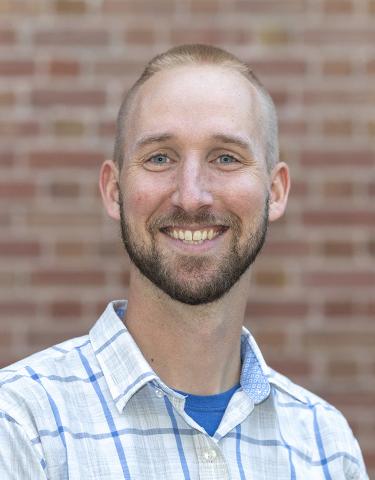Education
- Cornell University; Ph.D. in Entomology; 2019
- Gustavus Adolphus College; B.A. in Biology; 2012
Background
I began at WLC in the fall of 2019 as an Assistant Professor of Biology and as the head of the Marine Biology Department. One of my favorite things about being a professor at WLC is the opportunity to work closely with passionate students; thus far, I’ve been able to guide students through environmental consulting projects, research projects studying mosquitoes, and independent studies on marine and freshwater natural resources (to name a few). In the different roles in which I now serve, I’ve been able to draw on experiences going back to my undergraduate days, including: internships with the Minnesota DNR and the US EPA; my undergraduate honors thesis on minnow development; a research internship in Panama studying leaf cutter ants; and my graduate work with mosquitoes. If I’m not spouting weird animal facts, zapping accidentally liberated mosquitoes in my lab, or dissecting (dead) animals, you might find me canoeing, at pub trivia, or worshiping at St. Marcus Lutheran Church.
Teaching
- Principles of Biology I
- Ecology
- Introduction to Marine Science
- Vertebrate Zoology
- Invertebrate Zoology
- Stream Ecology
- Insect Empire
Research Interests
It doesn’t take much to get me interested in a research topic. Pitch something to me with a good story, and we’ll run with it. Research questions/topics that integrate disparate scientific fields particularly intrigue me. Some of my interests include:
- Marine biology
- Vector-borne disease (think mosquitoes, ticks, et al)
- Sperm biology (primarily in insects)
- Fisheries biology
Scholarly Works
The majority of the following published work is freely available; check out the links here.
2019
Noble JM, Degner EC, Harrington LC, Kourkoutis LF. Sci Rep 9(1):1-11. Modification of mosquito sperm surface morphology and motility coincides with the capacity to fertilize eggs.
2018
Degner EC, Ahmed-Braimah YH, Borziak K, Wolfner MF, Harrington LC, Dorus S. Proteins, transcripts, and genetic architecture of seminal fluid and sperm in the mosquito Aedes aegypti. Mol Cell Proteomics 18(S1):S6-S22.
Hatala AJ, Harrington LC, Degner EC. Age and body size predict sperm quantity in Aedes albopictus (Diptera: Culicidae) male mosquitoes. J Med Entomol 55(4):1051-1054.
2016
Degner EC, LC Harrington. A mosquito sperm’s journey from male ejaculate to egg: mechanisms, molecules and methods for exploration. Mol Reprod Dev 83(10):897-911.
Degner EC, LC Harrington. Polyandry depends on post-mating time interval in the dengue vector Aedes aegypti. Am J Trop Med Hyg 94(4): 780-785.
Alfonso-Parra C, Ahmed-Braimah YH, Degner EC, Wolfner MF, Harrington LC. Mating-induced transcriptome changes in the reproductive tract of female Aedes aegypti. PLoS Neg Trop Dis 10(2): e0004451.
Degner EC, Harrington LC. Sperm storage in a menacing mosquito. Mol Reprod Dev 83(6): 469. Featured micrograph.
2015
Estrada C, Degner EC, Rojas EI, Wcislo WT, Van Bael SA. The role of endophyte diversity in protecting plants from defoliation by leaf-cutting ants. Curr Sci India 109(1):55-61.
Service
- Marine Biology Department Head


 Biology
Marine Biology
Associate Professor
Biology
Marine Biology
Associate Professor